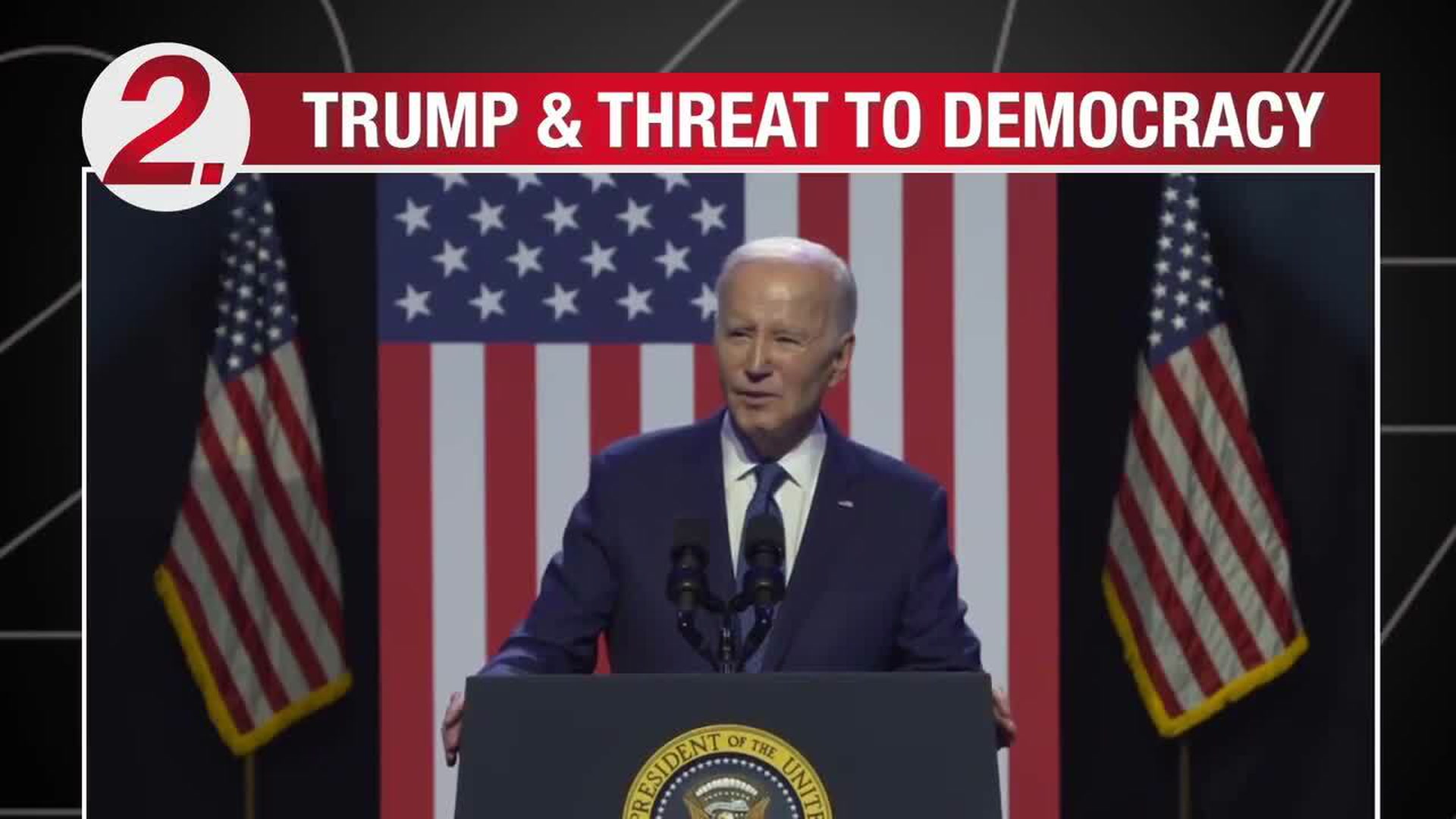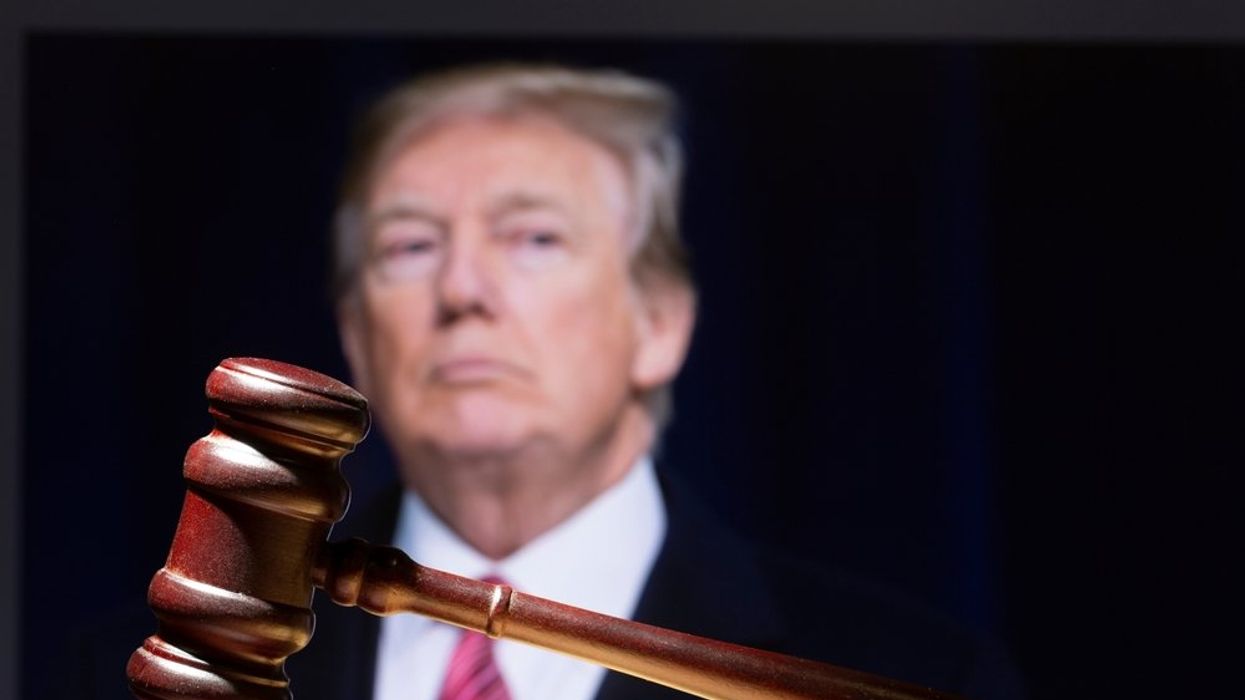Editor's note: Robert C. Gottlieb is a former Manhattan prosecutor and founder of the criminal defense firm Robert C. Gottlieb & Associates PLLC in New York City. The views expressed in this commentary are his own. View more opinion on CNN.
(CNN) — Former President Donald Trump has made history in more ways than one. First president to be impeached twice, first president to incite an insurrection against America and first president to be indicted by state and federal prosecutors … four times. (Trump denies any wrongdoing.) Now, he might as well become the first president to have his criminal trial televised.
The disturbing spectacle of Trump daring Federal District Judge Lewis Kaplan to remove him from the courtroom for his disruptive behavior in the second day of the E. Jean Carroll trial for defamation on Wednesday underscores the need to allow the people to judge for themselves what goes on during a Trump trial.
The federal judge overseeing the election subversion case against Trump, Tanya Chutkan, is considering an application brought by a coalition of media to televise what has been described correctly as the most consequential trial in American history (CNN is part of this media coalition). The media relies in large part on the public’s First Amendment right to attend criminal trials, an interpretation of the First Amendment rejected by the prosecutor, special counsel Jack Smith. His opposition rests primarily on Rule 53 of the Federal Rules of Criminal Procedure’s prohibition against courtroom photography and broadcast of federal trials.
Whether Rule 53’s per se prohibition on the broadcast of all federal proceedings contravenes the First Amendment is an issue that has generated thoughtful arguments both in favor and opposition among constitutional experts. But there should be no need for Judge Chutkan to decide which argument prevails. There is an expedited solution to ensure that the trial will be televised. The Supreme Court has the power to modify Rule 53 to permit the Trump trial to be televised gavel-to-gavel.
Let’s address the non-constitutional objections that those opposing cameras in the courtroom often raise:
Cameras in the courtroom negatively affect trial witnesses.
I have firsthand knowledge of that stress having testified in several cases. This concern, however, is flawed; testifying in court is always an uncomfortable situation with or without cameras staring at you.
In every high-profile trial, whether televised or not, the media is omnipresent with reporters seated in the first rows scribbling away. Witnesses cannot avoid knowing that the media is watching, hanging onto every word. Whether a trial is televised or not, witnesses are often accosted and recorded for broadcasting outside the courthouse as they arrive to testify.
There is no empirical data to support a claim that adding one small, stationary and silent camera in the courtroom adds to witnesses’ stress beyond what they already suffer knowing that reporters are in the courtroom, reporting on their testimony.
Televising trials will lead to grandstanding by attorneys and even judges.
There is no data to support this claim. In fact, in a four-year pilot program conducted by the Federal Judicial Center studying video recordings of courtroom proceedings in 14 federal district courts, the views on the extent to which cameras affected attorneys’ conduct were evenly split. One third of the judges surveyed thought that the hypothesized negative impact of cameras did not materialize. Rather, the judges observed that attorneys were prompted to come to court better prepared and to be more courteous.
Similarly, attorneys who participated in the program agreed that grandstanding likely occurred to no or a small extent. The most likely impact, according to the attorneys, was to provide the viewing public with a more positive view of the proceedings. If an attorney or a judge is apt to grandstand, the available evidence is that it does not matter if the proceedings are televised. Just having reporters covering a trial in the courtroom is enough to encourage grandstanding.
Cameras would place an increased burden on judges.
Opponents have expressed concerns that judges would become responsible for policing the cameras, thereby diverting them from their primary obligation to ensure a fair trial. This argument makes no sense knowing that judges must address far greater thornier legal issues than making sure the unobtrusive camera is operating properly.
Judges already are preoccupied with ruling on complex objections, evidentiary issues and disruptive conduct by lawyers, defendants and spectators. Having a stationary camera in the courtroom hardly adds to the judge’s burden to control the courtroom. If cameras are permitted to televise Trump’s trial, any violator of the court’s rules can be banished from the courtroom.
Jurors will be negatively affected by cameras.
Having participated in televised state jury trials, I have never heard that the presence of a single camera added to a juror’s concerns or fears.
The media is typically instructed by the court not to show the faces of jurors or disclose their identity. And there is more that courts can do to protect jurors.
Judges already have the authority to empanel anonymous jurors in highly charged cases, to ensure that their identity will not be known to the defendant, prosecutor or public. This has been done in federal courts throughout the country in cases involving organized crime and terrorism. There is no data showing that jurors in those cases have been incapable of rendering a fair verdict.
Cameras will cause witnesses to be more hesitant to testify.
This ignores the reality that witnesses are rarely thrilled to testify in court even in the absence of cameras. In high-profile cases, such as Trump’s trial, witnesses will be aware that even if cameras are prohibited inside the courtroom, reporters and cameras will be everywhere else chasing them down, documenting their every word and movement.
The Supreme Court should accept that there is no data to justify prohibiting Trump’s trial from being televised, and immediately remove Rule 53 as an obstacle. Speculation is not enough reason to prevent Americans from bearing witness to the prosecution of a former president charged with subverting the electoral process.
Whether or not cameras are permitted, we know that Trump will continue to impugn the integrity of the proceedings, prosecutor and judge, twist the testimony and repeat his debunked conspiracy theories. His disturbing behavior that was on full display during Wednesday’s court proceedings will undoubtedly continue during his upcoming criminal trial.
The American people are entitled to see and hear for themselves what goes on in the courtroom so that they can draw their own conclusions from the evidence.
The-CNN-Wire
™ & © 2024 Cable News Network, Inc., a Warner Bros. Discovery Company. All rights reserved.
Trump's threat to democracy

Video Source: Advocate Channel


















































